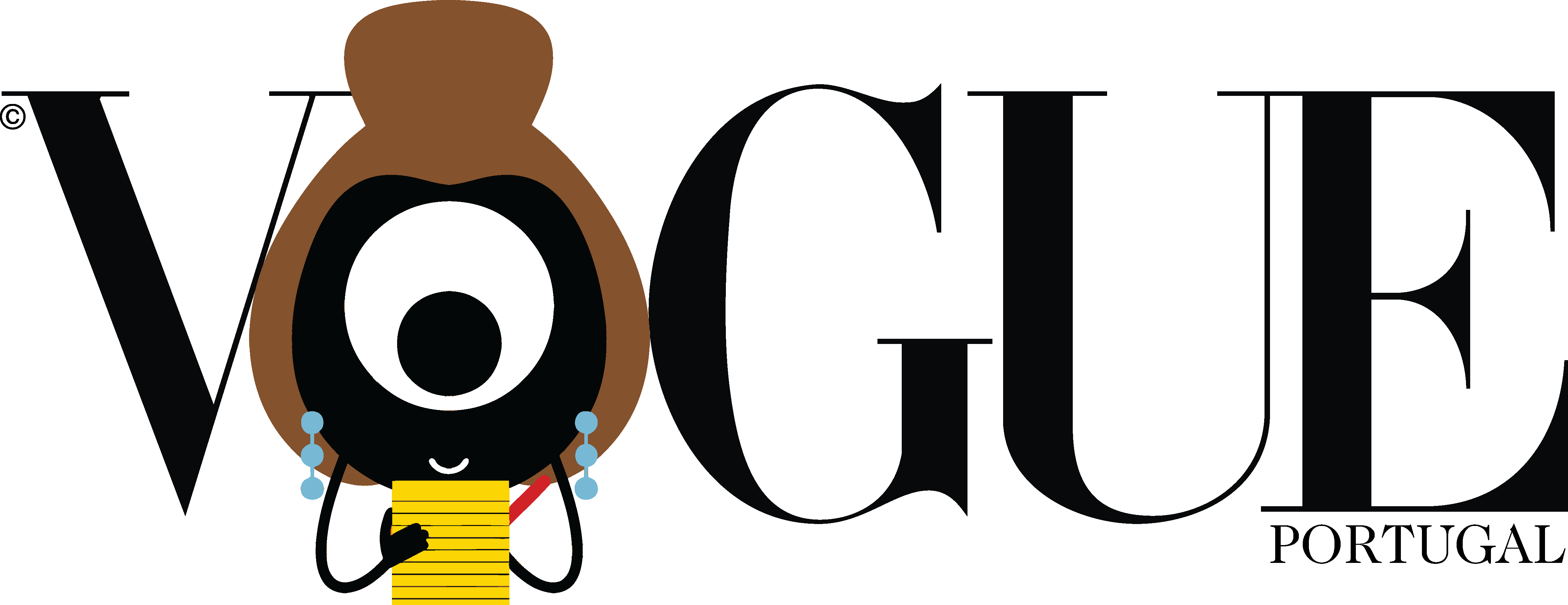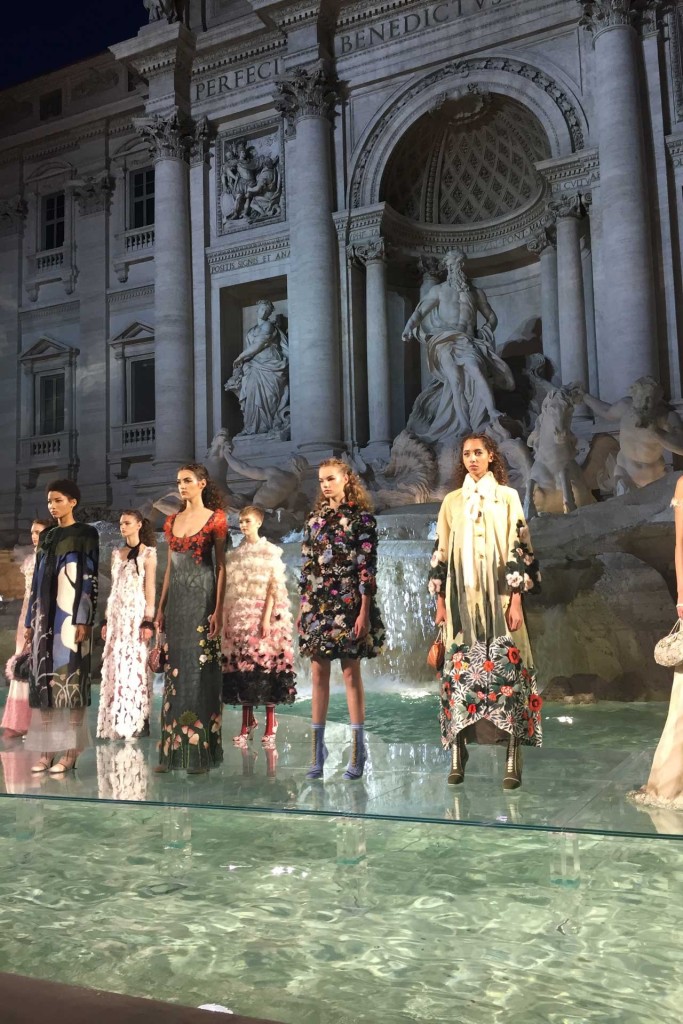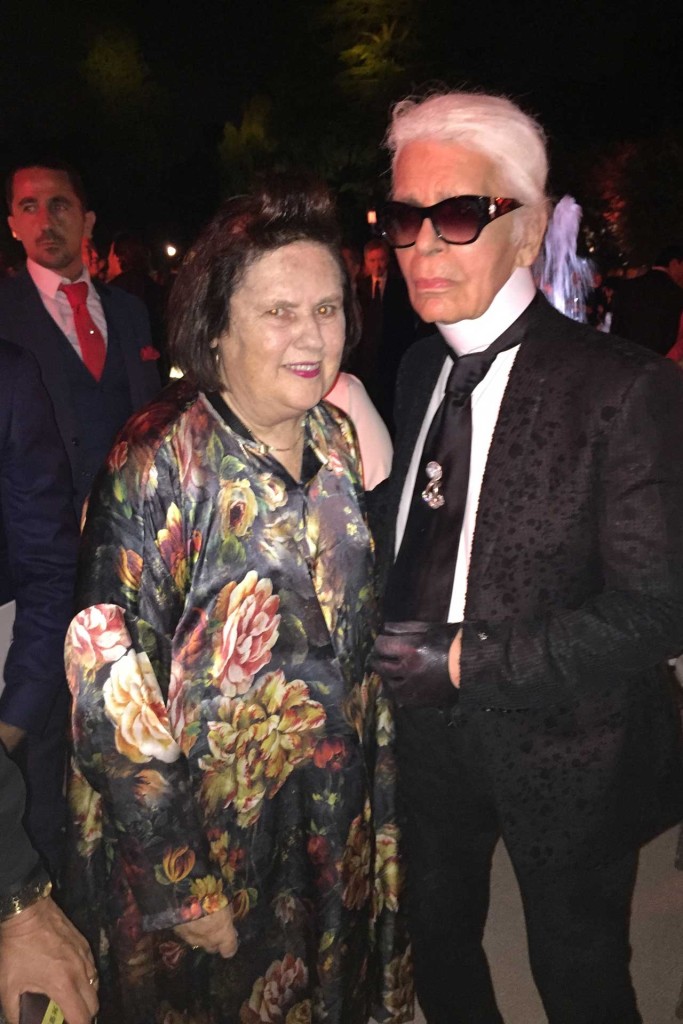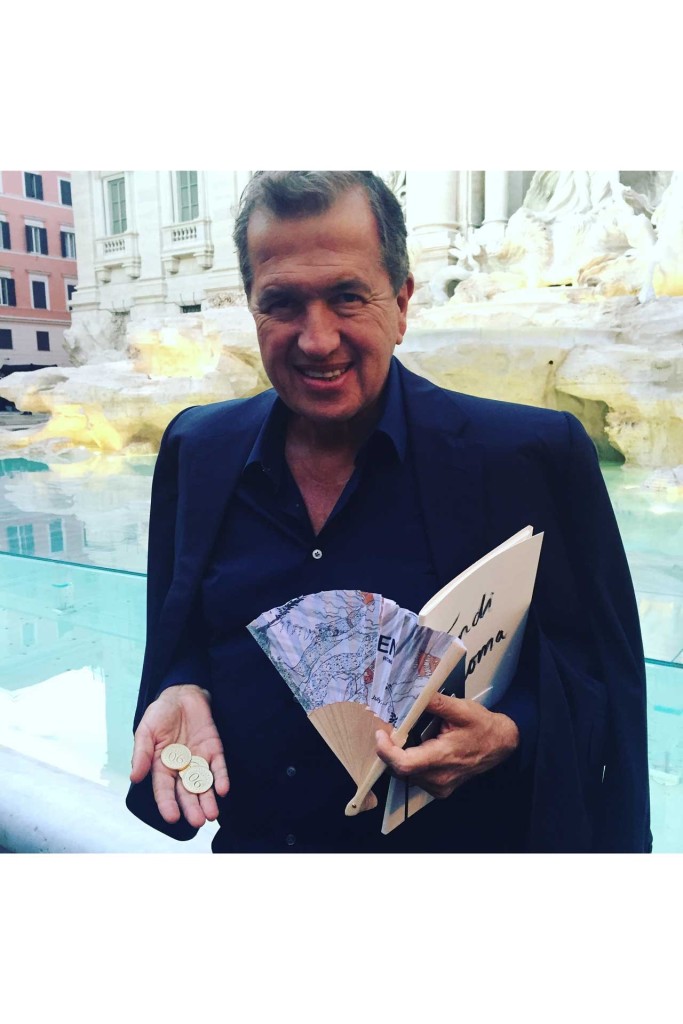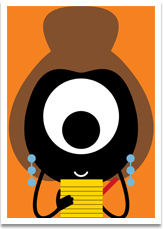THE TUMBLING WATER, the Baroque marble statues, the night sky dying into an intense blue, and figures seemingly walking on water in front of Rome’s Trevi fountain – it was an unforgettable and emotional fashion spectacle.
Not since La Dolce Vita, Federico Fellini’s 1960s film that featured Anita Ekberg frolicking in the waters, had the famous fountain hosted such a spectacular performance as this Fendi Roma Haute Couture show. Yet in their fairy tale outfits, the models seemed not showy or decadent, but transported into another world of forests and castles, flora and fauna.
By the time that Karl Lagerfeld himself stepped out with Silvia Venturini Fendi onto the transparent plexiglass runway above the tumbling stream and threw a symbolic three coins into the fountain, there was a roar of applause. It felt like a spectacle that would mark fashion history.
The celebration was threefold: Ninety years since Fendi’s foundation in Rome as a fur company; a staggering 51 years of Karl as a designer; and the restoration of the Trevi fountain as a gift to the city from the Fendi family – although Fendi only received final approval from the Mayor of Rome 24 hours before the event, according to Pietro Beccari, Fendi’s CEO. He gave an emotional speech afterwards at the outdoor dinner on the Pincio Terrace at the Villa Borghese, twinkling with candles, ringed by fountains and with a view over the eternal city.
Karl himself, showered with congratulations from movie star Kate Hudson to Bernard Arnault, President of LVMH (Fendi’s owner), said that it had taken six months to plan and create the show.
“It’s called ‘Legends and Fairytales’, but it is also about the incredible Fendi workmanship,” said Karl, who had put the focus on the petites mains who created the handwork for his Chanel show in Paris just two days previously. He called the Fendi collection “Artisans of Dreams”, fusing light-handed Italian workmanship with the fairy tales of his German heritage.
So the show had to be seen in two different aspects: the presentation that was a visual masterpiece and cheered to the echo by front-row guests from photographer Mario Testino to focus-of-the-moment Pierpaolo Piccioli of Valentino and his former design partner Maria Grazia Chiuri. Dior has officially announced that Maria will be joining the French house as women’s designer.
The other focus was on the delicately but intensely-worked clothes. For example, Karl has always treated fur like fabric, combining many small pieces of different kinds to create melds of colour and texture. At the after-party, he explained to me that the work was divided between ateliers in Paris, such as Maison Lemarié, and the Fendi fur workers.
“But did you see the dresses?” asked Silvia Fendi, referring to the fact that this show was not a fur fantasy, but also showed pretty, modern clothes such as the denim-look jacket and blue-and-white short skirt worn by Kendall Jenner that opened the show to longer dresses in feather-light materials. Delicacy and decency were the words that summed up the look for day or night.
But it was Lagerfeld’s romantic and even whimsical side, not seen so often behind the rigorous tailoring of Chanel, which was at the heart of this Fendi anniversary show. There were roses in full pink bloom against a leafy background for a slim, strapless dress; and more roses rambling over a long fitted coat. However “pretty” the concept, even for little pouch bags, the ankle boots or sturdy heeled shoes brought soaring fantasy to earth.
After looking at a display of Karl’s drawings for Fendi and at photographs that showed glimpses of the details, I longed for precise descriptions of how and with what these clothes are made.
I watched faded rust roses on the exterior of a pale and fluffy fur coat. I saw a brief, dark fur jacket patterned with hearts; and another short fur coat scattered with flowers. But there was no doubt about the most stunning pieces: they told visual fairy tales.
On dresses or coats, I could see the stories of the Brothers Grimm – the princess lost in the forest, the woodland of magical blooms, the branches woven into a fence covered in soaring flowers. Were there also goblins and fairies, or just in my imagination, as this densely decorated but light-handed collection was walked over the water?
Something very deep and romantic came out of Karl’s personal vision. And perhaps it is significant that it flowered at Fendi. His lifetime experience with members of the family has created a bond of trust, and Silvia Fendi’s role in this collection, although un-trumpeted, must have been significant.
Pietro Beccari’s enthusiastic management and his creation of a new Fendi headquarters in a modernist building on the edge of the city has also contributed in giving Karl a Roman work area and a link to the city.
It will be part of Karl’s own legend that he created this ode to Rome, to beauty and to craftsmanship, at a time when the tectonic plates of fashion – and European history – seem to be shifting.
For one enchanted evening, the Fendi fashion show allowed its audience to dream.
And Karl? Beccari had the punch line when he said of the eternal Karl Lagerfeld, “He looked at the Trevi Fountain and said to me, ‘For Fendi’s 100th birthday, what are we doing to do as an encore?'”
